If you have a passion for fashion and a keen eye for style, a career as a fashion buyer can be a dream come true. As a fashion buyer, you’ll have the opportunity to curate the latest trends and select merchandise for retail stores, playing a critical role in shaping the fashion industry.
To embark on this exciting career path, it’s important to understand the essential steps and tips to become a successful fashion buyer. From developing the necessary skills and qualifications to building a strong industry network, here are the key steps that can guide you on your journey:
Key Takeaways:
- Gain a deep understanding of the role and responsibilities of a fashion buyer.
- Develop the necessary skills and qualifications through education and practical experience.
- Build a strong network of industry professionals to open doors to opportunities.
- Gain hands-on experience through internships and entry-level positions in the fashion industry.
- Stay updated on fashion trends and industry knowledge to make informed buying decisions.
Understand the Role of a Fashion Buyer
Fashion buyers play a crucial role in the retail industry by selecting and purchasing apparel and accessories for retail stores. As a fashion buyer, you have the responsibility of analyzing market trends, researching customer preferences, negotiating with suppliers, and ensuring that the merchandise aligns with the store’s brand and target market.
In order to excel in this role, you need to have a strong sense of style, excellent analytical skills, and a deep understanding of the fashion industry. Your keen eye for fashion trends will guide you in making informed buying decisions that cater to the desires and preferences of your target customer base. Additionally, your ability to negotiate with suppliers and secure favorable deals will contribute to the profitability of your retail business.
“As a fashion buyer, you have the power to shape the inventory of a retail store and influence the fashion choices of countless customers.”
By staying ahead of the latest fashion trends, you’ll be able to curate a collection that reflects the current styles and captures the interest of your target audience. This involves continuous market research, attending fashion shows, and closely monitoring fashion influencers and emerging designers in order to stay up-to-date with the rapidly changing fashion landscape.
Ultimately, the success of a fashion buyer lies in their ability to balance the artistic and commercial aspects of the role. They must be able to select fashion-forward and on-trend pieces that will resonate with customers, while also considering the financial implications and profit potential of their buying decisions.
The Responsibilities of a Fashion Buyer:
- Conducting market research to identify current and emerging fashion trends
- Analyzing sales data and customer feedback to inform buying decisions
- Researching and selecting suppliers and negotiating favorable terms
- Attending trade shows, fashion shows, and industry events to discover new brands and styles
- Collaborating with the merchandising team to create a cohesive product assortment
- Monitoring inventory levels and making replenishment decisions
- Building and maintaining relationships with designers, brands, and suppliers
- Creating and managing budgets and forecasts
- Ensuring that merchandise assortment aligns with the store’s target market and brand image
As a fashion buyer, your intricate understanding of the fashion industry and your ability to adapt to changing trends will contribute to the success of your retail business. With your knowledge and expertise, you have the power to shape the fashion choices of countless customers, making a lasting impact in the industry.
Develop the Necessary Skills and Qualifications
While a formal education is not always a requirement for becoming a fashion buyer, it can greatly enhance your chances of landing a job in this competitive field. Pursuing a degree in fashion merchandising, fashion marketing, or a related field can provide you with a solid foundation of knowledge and skills.
Gaining practical experience through internships or entry-level positions in the fashion industry can help you develop the necessary skills, such as trend forecasting, product evaluation, and negotiation.
“Gaining practical experience is crucial to becoming a successful fashion buyer. It not only provides you with real-world exposure to the industry but also allows you to hone your skills and build a strong network of industry contacts.” – Emily Johnson, Fashion Buyer
Here are some key skills and qualifications that can make you stand out as a fashion buyer:
| Fashion Buyer Skills | Fashion Buyer Qualifications |
|---|---|
|
|
“Fashion buyers need a combination of creative flair and business acumen. They must be able to identify trends and anticipate what customers will want, while also considering the financial aspects of their buying decisions.” – Alexander Thompson, Fashion Industry Expert
By developing these skills and acquiring the necessary qualifications, you can demonstrate your readiness and dedication to excel as a fashion buyer.
Build a Strong Fashion Network
In the fashion industry, networking is the key to unlocking exciting opportunities and establishing valuable connections with industry professionals. Building a strong fashion network can open doors to mentorship, valuable insights, and potential job leads. Here are some effective strategies to expand your fashion buyer network:
- Attend fashion industry events: Make it a priority to attend fashion industry events such as trade shows, fashion weeks, and industry conferences. These events provide valuable opportunities to meet and connect with fashion designers, suppliers, and other industry insiders.
- Join professional organizations: Consider joining professional organizations such as the Fashion Group International or the Council of Fashion Designers of America. These organizations host networking events and offer resources to help you expand your professional connections.
- Connect on social media: Leverage social media platforms like LinkedIn and Instagram to connect with fashion professionals. Follow industry influencers, engage with their content, and participate in relevant discussions. Building virtual connections can help you stay informed about industry trends and build relationships with potential collaborators.
- Reach out to fashion professionals: Don’t be afraid to reach out to fashion designers, suppliers, and other industry professionals you admire. Send personalized messages expressing your interest in their work and the potential for collaboration. Networking is about building genuine relationships, so be authentic and respectful in your approach.
Building a strong fashion network takes time and effort, but the connections you establish can be invaluable throughout your fashion buying career. By actively engaging with industry professionals and staying connected, you’ll position yourself for success and open doors to exciting opportunities in the fashion industry.
Gain Hands-On Experience
Getting hands-on experience in the fashion industry is crucial for aspiring fashion buyers. By immersing yourself in internships or entry-level positions at fashion retail companies, you can gain invaluable knowledge and insights into the inner workings of the industry. Not only will this experience deepen your understanding of the business, but it will also provide you with the chance to make valuable connections and obtain references for future job applications.
Participating in fashion internships allows you to work alongside industry professionals, observe their decision-making processes, and contribute to the daily operations of a fashion buying team. This hands-on experience is an excellent opportunity to apply your skills and knowledge gained from education or prior experience, honing your abilities in trend analysis, product evaluation, and negotiation.
Additionally, entry-level fashion positions can provide you with a broader perspective of the fashion industry. These positions often involve collaborating with different departments, such as marketing, merchandising, and retail, allowing you to gain insights into how the different aspects of a fashion business work together. While these positions may not have the same level of responsibility as a fashion buyer, they provide a solid foundation for future growth within the industry.
During your hands-on experience, strive to gain exposure to various facets of the fashion buying process. Actively seek opportunities to assist in product selection, analyze market trends, participate in buying meetings, and build relationships with vendors. The more well-rounded your experience, the better equipped you will be to tackle the challenges of a career as a fashion buyer.
Remember, gaining hands-on experience is not just about accumulating a number of months or years in the fashion industry; it’s about actively learning, absorbing knowledge, and developing skills that will set you apart. Embrace every opportunity, big or small, to learn, grow, and demonstrate your passion for the fashion industry.
If you’re wondering how to find fashion internships or entry-level positions, there are several avenues you can explore. Start by researching fashion companies that align with your interests and values. Many fashion brands and retailers offer internship programs or entry-level positions specifically tailored to individuals looking to break into the industry. Reach out directly to these companies to inquire about available opportunities or check their websites for information on application processes. Additionally, utilize online job boards and career websites that specialize in fashion industry placements.
Remember, the fashion industry is highly competitive, so don’t get discouraged if you face initial rejections. Persistence and determination are key. Keep refining your skills, expanding your professional network, and seeking opportunities to build your fashion buying experience. With hard work and dedication, you’ll be well on your way to launching a successful career as a fashion buyer.
Now let’s take a look at the table below for a comparison of the benefits of fashion internships and entry-level positions:
| Fashion Internships | Entry-Level Positions |
|---|---|
| Opportunity to learn from industry professionals | Exposure to various departments within a fashion company |
| Hands-on experience in trend analysis and product evaluation | Involvement in the buying process and vendor relationships |
| Networking opportunities with fashion industry insiders | Foundation for future growth and advancement |
| Provides valuable references for future job applications | Develops an overall understanding of the fashion business |
Stay Updated on Fashion Trends
As a fashion buyer, it is crucial to stay ahead of the latest fashion trends. By keeping up with the ever-evolving fashion industry, you can make informed buying decisions and ensure that your product selection resonates with your target market. Here are some strategies to help you stay updated on fashion trends:
1. Regularly Read Fashion Magazines
Fashion magazines such as Vogue, ELLE, and Harper’s Bazaar are excellent sources for the latest fashion trends. Subscribe to these publications or visit their websites regularly to gain insights into the current styles, designers, and industry news.
2. Follow Fashion Blogs
There are numerous fashion blogs run by fashion influencers and industry experts that provide valuable trend forecasts and style inspiration. Follow these blogs and engage with the content to stay up-to-date on the latest fashion trends.
3. Attend Fashion Shows
Fashion shows are where designers showcase their latest collections, setting the tone for upcoming fashion trends. Attend local fashion shows or watch live streams of major fashion events to observe the latest runway looks and gain inspiration for your buying decisions.
4. Familiarize Yourself with Emerging Designers
Stay on top of the industry by discovering emerging designers who are shaping the future of fashion. Keep an eye on fashion awards, exhibitions, and industry events to identify new talent and potential collaborations.
5. Follow Influential Fashion Influencers
Influential fashion influencers have the power to shape trends and inspire millions of people through their style choices. Follow popular fashion influencers on social media platforms like Instagram to stay updated on their fashion picks and predictions.
By actively seeking out these sources of fashion industry knowledge, you can stay ahead of the curve and ensure your fashion buying decisions are in line with the latest trends.
Showcase Your Skills Through a Portfolio
Creating a professional portfolio is an essential step in demonstrating your expertise and skills as a fashion buyer. A well-curated portfolio is not only impressive but also sets you apart from other candidates in the highly competitive industry. Your portfolio serves as a visual representation of your capabilities, allowing potential employers to assess your strengths and achievements.
When developing your fashion buyer portfolio, include examples that highlight your trend forecasting, buying strategies, and product evaluations. Showcase your ability to identify market trends, make informed purchasing decisions, and analyze product viability. Presenting a diverse range of examples will demonstrate your versatility and adaptability in different fashion categories and markets.
Relevant work experience or projects should also find a prominent place in your portfolio. If you have participated in buying trips or collaborated with designers, emphasize these experiences. These practical engagements will demonstrate your ability to work effectively with suppliers, negotiate contracts, and curate collections that align with the brand’s vision and target market.
To further enhance your portfolio, consider incorporating visual elements such as photos, charts, and graphs. These elements can effectively convey the impact of your buying decisions, showcasing your ability to drive sales, increase profitability, and meet or exceed performance targets.
Remember, the key to a successful fashion buyer portfolio lies in its organization, clarity, and visual appeal. Ensure that your portfolio is well-structured and easy to navigate, enabling potential employers to quickly assess your skills and achievements. Additionally, regularly update your portfolio to reflect your latest projects and accomplishments.
| Key Elements of a Fashion Buyer Portfolio |
|---|
| Trend Forecasting: Include examples of accurate trend predictions and your ability to interpret and adapt them for target audiences. |
| Buying Strategies: Showcase successful buying strategies that have resulted in increased sales, improved profit margins, or expanded market reach. |
| Product Evaluations: Highlight your expertise in evaluating the quality, marketability, and suitability of fashion products for your target market. |
| Work Experience: Highlight relevant work experience, such as buying trips, collaborations, or internships, illustrating your ability to navigate the industry and develop successful partnerships. |
| Visual Elements: Incorporate visuals such as photos, charts, and graphs to enhance the presentation and illustrate the impact of your buying decisions. |
Prepare for the Job Application Process
When applying for fashion buyer positions, it’s crucial to equip yourself with a well-crafted resume and cover letter that effectively highlight your relevant skills and experiences. Tailor your application materials to suit each specific job opportunity and make a lasting impression on prospective employers. Additionally, conducting thorough research on the company you’re applying to demonstrates your dedication and understanding of their brand and target market.
Here are some key tips to help you prepare for the job application process:
- Customize your resume and cover letter: Tailor your resume to showcase your relevant skills, experiences, and accomplishments. Highlight your expertise in market analysis, trend forecasting, negotiation, and relationship building. Use your cover letter to explain why you are interested in the specific role and how your skills align with the company’s needs.
- Research the company: Before applying, thoroughly research the company’s brand identity, target market, and key competitors. Familiarize yourself with their products, aesthetic, and values. This knowledge will enable you to create application materials that resonate with the company’s vision and demonstrate your genuine interest.
- Prepare for interviews: Practice common interview questions and prepare examples that showcase your expertise as a fashion buyer. Be ready to discuss your experience in trend analysis, product selection, and supplier negotiation. Highlight your ability to make data-driven buying decisions and adapt to changing market demands.
- Consider online courses or certifications: Taking additional online courses or certifications can help enhance your skills and credentials as a fashion buyer. Look for programs that focus on trend forecasting, buying strategies, or merchandising. These courses can show potential employers that you are committed to continuous learning and professional growth.
By following these guidelines, you can strengthen your job application and increase your chances of securing a fashion buyer position. Remember to showcase your unique skills and experiences, demonstrate your understanding of the industry, and present yourself as a valuable asset to prospective employers.
Image:
Consider Additional Education and Certification
To stand out in the fashion buying industry, it’s important to continuously enhance your knowledge and skills. Pursuing additional education and certifications can provide you with a competitive edge and open doors to exciting opportunities. Online courses and certifications specifically designed for fashion buyers can help you gain valuable insights and expand your expertise. One such course is the FIT Fashion Styling Foundations course offered by Yellowbrick, which offers comprehensive training in fashion styling and buying.
Continuing education showcases your commitment to professional growth and development. By enrolling in fashion industry courses and obtaining specialized certifications, you demonstrate your dedication to staying ahead of industry trends and evolving your skills as a fashion buyer. Employers often value candidates who have invested in their education and have a deeper understanding of the fashion industry.
Obtaining a fashion buyer certification validates your knowledge and expertise, making you a more desirable candidate in the job market. These certifications provide you with the opportunity to showcase your understanding of fashion buying principles, trend forecasting, merchandising strategies, and more. They also serve as a testament to your commitment to excellence and professionalism.
| Benefits of Additional Education and Certification |
|---|
| 1. Enhanced knowledge and skills in fashion buying |
| 2. Increased credibility and marketability in the fashion industry |
| 3. Competitive edge in job applications and promotions |
| 4. Access to a broader network of industry professionals and resources |
Investing in your education and obtaining fashion buyer certifications not only helps you advance in your career but also shows your dedication to continuous learning and improvement. Stay ahead of the curve by taking advantage of the education and certification opportunities available in the fashion industry.
Fashion Buying Job Outlook
When considering a career in fashion buying, it’s important to understand the job outlook and the current state of the fashion buyer employment market. The fashion industry is constantly evolving, presenting both challenges and opportunities for aspiring fashion buyers.
While the fashion buying job market can be competitive, it’s essential to remember that with the right skills, education, and experience, there are plenty of avenues for growth and advancement within this dynamic field.
To position yourself for success in the fashion buying industry, staying up-to-date with industry trends, market demands, and consumer preferences is crucial. Today’s fashion buyer needs to have a finger on the pulse of the industry, ensuring their buying decisions align with the ever-changing needs of the target audience.
Here is a complete breakdown of the fashion buying career outlook:
Fashion Buying Career Outlook
The fashion buying career outlook is influenced by several key factors:
- The overall growth rate of the fashion industry
- Market demand for skilled fashion buyers
- Emerging technologies and their impact on fashion buying
- Consumer trends and preferences
Currently, the fashion industry continues to experience steady growth, fueled by shifting consumer expectations and increasing online retail opportunities. As a result, employment prospects for fashion buyers remain optimistic.
However, given the competitive nature of the fashion buying job market, it’s essential for aspiring fashion buyers to set themselves apart from the competition by acquiring the right skills and experience.
By staying up-to-date with the latest trends, improving your negotiation skills, and focusing on building a strong professional network, you can enhance your chances of securing a fashion buying position.
Additionally, it’s worth noting that the job market for fashion buyers may vary depending on geographical location and the size of the fashion industry in a particular region.
With a well-rounded skill set, relevant experience, and a deep understanding of the fashion industry, you can capitalize on the opportunities available in the fashion buying job market.
| Factors | Impact on Fashion Buying Job Outlook |
|---|---|
| Industry Growth | The growth of the fashion industry directly influences the number of available fashion buying positions. |
| Market Demand | As consumer needs and preferences evolve, there is a demand for fashion buyers who can anticipate and meet these demands. |
| Technology | Advancements in technology continue to reshape the fashion buying landscape. Fashion buyers must stay updated on industry-specific software and digital tools. |
| Consumer Trends | Understanding and adapting to consumer trends is vital for fashion buyers, as their buying decisions directly impact sales and profitability. |
Continuing to develop your skills, staying informed about industry trends, and building a strong professional network can help you navigate the ever-evolving fashion buying job market successfully.

With dedication and persistence, you can carve out a fulfilling and successful career in fashion buying.
Fashion Buying Industry Overview
The fashion buying industry is a dynamic and exciting sector of the fashion industry. Fashion buyers play a crucial role in selecting and purchasing apparel and accessories for retail stores. They analyze market trends, negotiate with suppliers, and ensure that the merchandise aligns with the store’s brand and target market. It is a fast-paced and rewarding career path for individuals with a strong sense of style, analytical skills, and a passion for fashion.
Key Responsibilities of Fashion Buyers
Fashion buyers take on a range of responsibilities to ensure the success of retail stores. Some key responsibilities include:
- Analyzing market trends and consumer preferences to identify emerging fashion trends
- Researching and selecting apparel and accessories that align with the store’s brand and target market
- Negotiating with suppliers to secure competitive pricing and favorable terms
- Managing inventory levels and making buying decisions based on sales data and market demands
- Collaborating with merchandising teams to create visually appealing displays and promotions
In addition to their day-to-day responsibilities, fashion buyers also attend trade shows, fashion shows, and industry events to stay updated on the latest trends and build relationships with designers and suppliers.
The Fashion Buying Market
The fashion buying market is constantly evolving, driven by changing consumer preferences and market trends. Fashion buyers must always stay ahead of the curve to ensure their store remains competitive in the industry. They need to have a deep understanding of the target market, including their style preferences, buying behaviors, and price sensitivity.
Moreover, fashion buyers must be well-versed in trend forecasting, analyzing sales data, and conducting market research to make informed buying decisions. They need to carefully curate their assortments, considering factors such as seasonality, price points, and customer demographics.
The retail buying industry as a whole is highly competitive, with fashion buyers facing the challenge of sourcing unique and on-trend pieces while also maximizing profitability. It requires a combination of creativity, business acumen, and strong analytical skills to succeed in this fast-paced industry.
| Key Factors Influencing the Fashion Buying Industry | Impact on Fashion Buyers |
|---|---|
| Emerging fashion trends | Fashion buyers need to stay updated and adapt their merchandise selections accordingly to meet consumer demand. |
| Shifts in consumer preferences | Understanding the evolving preferences of the target market is crucial for fashion buyers to make informed buying decisions. |
| Technological advancements | Technology plays a significant role in the fashion buying process, from data analysis tools to online buying platforms. |
| Globalization | Fashion buyers need to navigate global sourcing, production, and distribution processes to ensure a diverse and competitive product assortment. |
Despite the challenges, the fashion buying industry offers a wealth of opportunities for individuals passionate about fashion and retail. It is a dynamic and ever-changing field that requires a combination of creativity, business acumen, and trend forecasting skills to thrive.
Fashion Buyer Salary
When it comes to fashion buyer salaries, several factors can influence the earning potential. These factors include the individual’s experience, location, and the specific employer they work for. On average, the median salary for a fashion buyer is approximately $70,000 per year.
However, it’s important to note that salaries in this field can vary significantly, with some professionals earning as low as $40,000 per year and others making over $100,000 per year. The specific salary range is influenced by a variety of factors, such as the individual’s level of experience, industry knowledge, and job performance.
As with any profession, gaining experience and expertise in the field can have a positive impact on earning potential. Fashion buyers who have a deep understanding of the industry and consistently perform well in their roles often have opportunities for higher salaries and career advancement.
Fashion Buying Career Advancement
With dedication and continued professional development, fashion buyers can advance in their careers. As you gain experience and expertise in the field, opportunities for progression and growth become available to you. Advancing in the fashion buying industry can lead to roles such as senior buyer, buying director, or even starting your own fashion buying consultancy. It is important to continuously learn, network, and stay up-to-date with industry trends to propel your career forward.
One of the pathways to career advancement in fashion buying is through gaining valuable experience and building a strong track record of success. The more experience you have in the industry, the more opportunities you will have to take on higher-level roles with increased responsibilities.
Networking is also crucial for advancing in your fashion buying career. By connecting with industry professionals, attending fashion events, and building relationships with designers and suppliers, you can increase your visibility and access new opportunities. Networking can provide you with valuable insights, mentorship, and potential job leads.
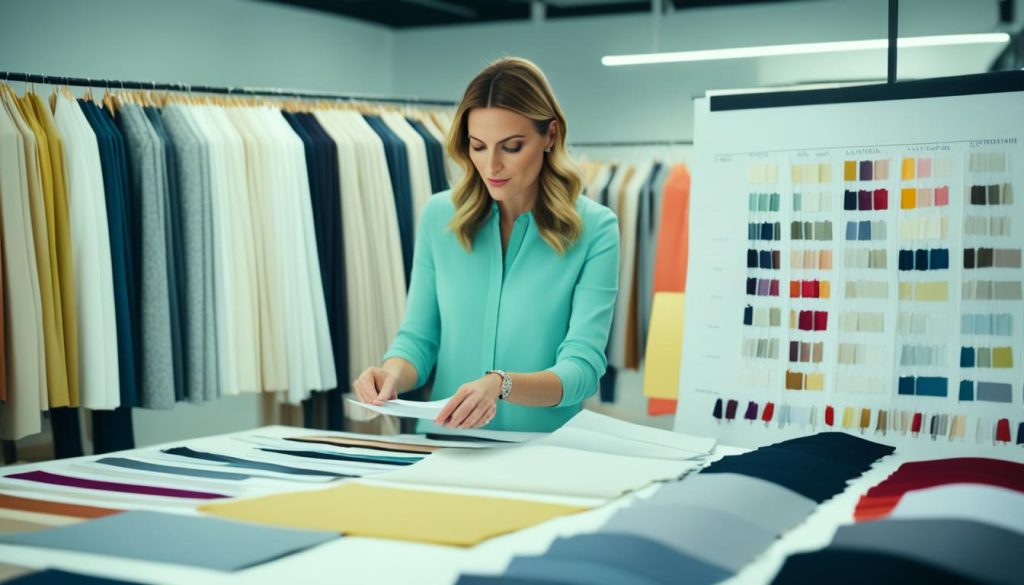
Continuing education and staying updated on industry trends are essential for career advancement in fashion buying. By investing in additional education, certifications, or specialized training courses, you can enhance your skills and credentials, making yourself a more competitive candidate for senior positions.
“Continuously updating your knowledge and skills is key to staying ahead in the fashion buying industry.”
Senior fashion buyers often have a deep understanding of market trends, consumer behavior, and emerging designers. They have honed their negotiation skills, developed strong industry connections, and possess a keen eye for selecting the right merchandise for their target audience.
Fashion Buying Career Advancement
| Key Factors | Benefits |
|---|---|
| Experience | Gain higher-level roles with increased responsibilities. |
| Networking | Access new opportunities, industry insights, and job leads. |
| Continuing Education | Enhance skills and credentials for senior positions. |
| Industry Knowledge | Understand market trends, emerging designers, and consumer behavior. |
By focusing on these key factors and continuously striving for growth and improvement, you can advance in your fashion buying career and reach new heights in the industry.
Fashion Buying Job Satisfaction
The fashion buying profession offers job satisfaction for those who are passionate about fashion and have a keen eye for trends. Buying decisions directly impact the success of retail stores and fashion brands, and there is a sense of fulfillment in seeing the products you have selected being worn by customers. The fast-paced nature and constant evolution of the industry make it an exciting and rewarding career choice for fashion enthusiasts.
Being a fashion buyer allows you to immerse yourself in the latest fashion trends, work closely with designers and suppliers, and contribute to the overall success of the fashion industry. The ability to curate collections and discover new and emerging brands adds a level of creativity and excitement to the job.
“Fashion is not something that exists in dresses only. Fashion is in the sky, in the street; fashion has to do with ideas, the way we live, what is happening.” – Coco Chanel
As a fashion buyer, you have the opportunity to make an impact on the industry by identifying trends early on and influencing consumer preferences. Your expertise and knowledge of the market can shape the direction of fashion and contribute to the growth of retail businesses.
Furthermore, the dynamic nature of the fashion industry keeps the role of a fashion buyer interesting and ever-evolving. You’ll constantly be exposed to new styles, technologies, and consumer behaviors, ensuring that no two days are the same. This variety and constant stimulation make it an exciting career choice for those who thrive in a fast-paced environment.
The Impact of Fashion Buying Decisions
The impact of fashion buying decisions is significant and tangible. Your choices directly affect the sales and profitability of retail stores and fashion brands. Seeing the products you have carefully selected being worn and appreciated by customers brings a deep sense of satisfaction and accomplishment.
By understanding consumer preferences and market trends, you can strategize and forecast upcoming trends, ensuring that the products you choose resonate with your target audience. This ability to predict consumer demands and influence fashion trends is not only personally fulfilling but also crucial for the success of the fashion industry as a whole.
Career Growth and Advancement Opportunities
The fashion buying profession also offers ample opportunities for career growth and advancement. As you gain experience and expertise in the field, you can progress to more senior roles such as head buyer, buying director, or even start your own fashion buying consultancy. Continual learning and staying updated on industry trends through networking and professional development are essential for seizing these advanced opportunities.
| Career Advancement | Qualifications and Skills |
|---|---|
| Senior Fashion Buyer | – Extensive experience in fashion buying – Strong negotiation skills – Mastery of trend forecasting – Proven track record of success |
| Buying Director | – Exceptional leadership abilities – Strategic thinking and planning skills – Extensive industry knowledge – Strong business acumen |
| Fashion Buying Consultant | – Expertise in fashion buying strategies – Ability to advise and guide clients – Strong network of industry contacts |
These advanced roles offer increased responsibilities, influence, and financial rewards. They provide an avenue for continuous professional growth and the opportunity to shape the direction of the fashion industry.
Conclusion
By following the essential steps and tips outlined in this guide, you can position yourself for success in pursuing a career as a fashion buyer. Understanding the role and responsibilities of a fashion buyer is the first crucial step. Developing the necessary skills and qualifications through education and gaining hands-on experience will provide you with a solid foundation for success. Building a strong network of industry professionals and staying updated on fashion trends will keep you informed and connected in the dynamic fashion industry.
Remember, a well-curated portfolio showcasing your skills and expertise is an effective tool for impressing potential employers. Prepare for the job application process by tailoring your resume and cover letter to highlight your relevant experiences and understanding of the target company. Continuing education and certifications can further enhance your skills and credentials, giving you a competitive edge in the job market.
With dedication, passion, and continuous learning, you can thrive in this dynamic and competitive industry. The fashion buying profession offers job satisfaction for those who are passionate about fashion and have a keen eye for trends. Each step along the way plays a crucial role in your journey to becoming a successful fashion buyer. So, take the leap and embark on an exciting career in fashion buying!

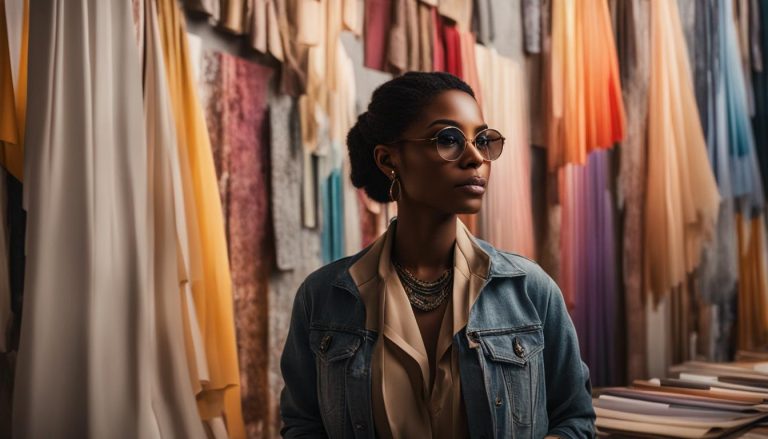


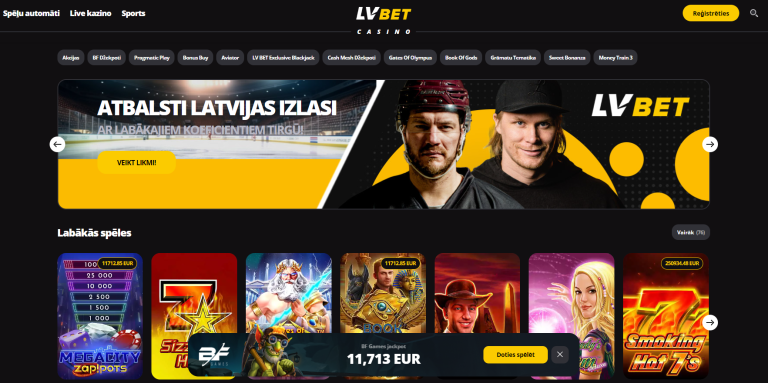

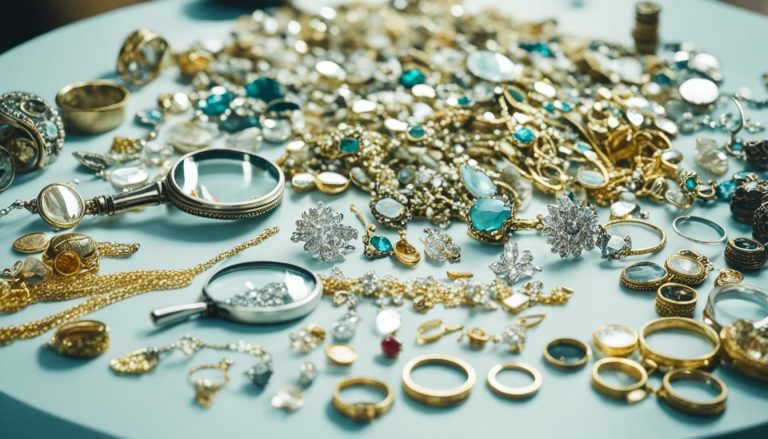
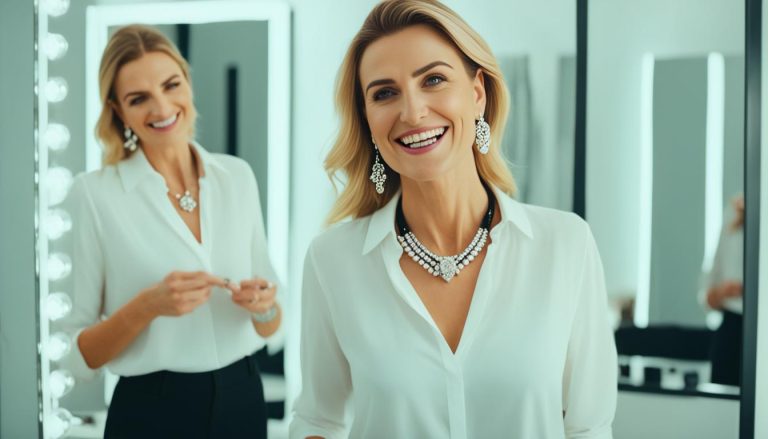
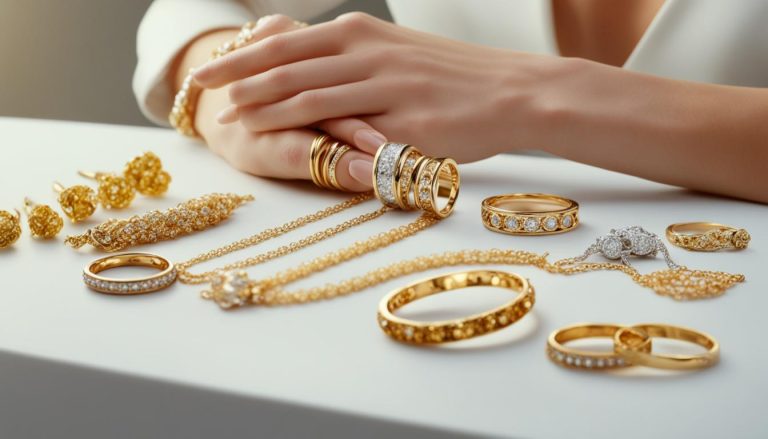
+ There are no comments
Add yours